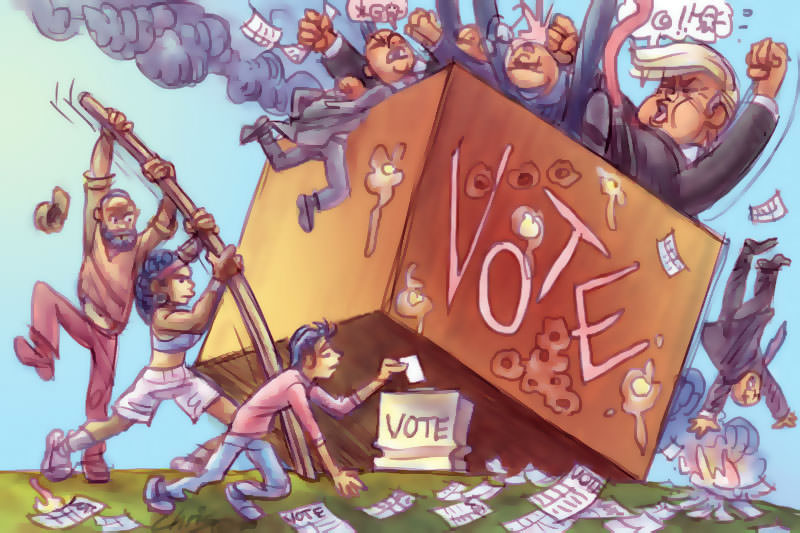Extract from Eureka Street
- Gillian Bouras
- 27 October 2020
In a life quite possibly ruined by literature I still, even at this late stage, take heed of the greats. Hermione Lee, in her recently released biography of playwright Tom Stoppard, quotes the latter: ‘All political acts have a moral basis to them, and are meaningless without it’.

A worthy and sound idea to ponder at any time, but at present rather sadly, for it seems to me that so many political acts in today’s world are instead amoral at bottom: we live in a world in which affluent nations discriminate against groups such as the poor and disadvantaged, the disabled and elderly, as well as against the immigrants and refugees, and against most who are outsiders. How meaningful, therefore, are these actions, which often seem to be simply punitive? It becomes very difficult to reconcile such acts on the part of politicians with the Christian ethos Western nations often profess to believe in.
The leaders of these nations, as well as acting amorally, have also apparently thrown the ideal of common civility to the winds. What are we to make of heads of government who hurl insults and are economical with the truth, use the gag continually, and turn their backs when those in opposition are speaking?
It has to be admitted, however, that discontent with government is nothing new. Satirist Jonathan Swift considered that a successful farmer could ‘do more essential service to his country than the whole race of politicians put together’. Statesman Edmund Burke lamented that ‘the age of chivalry has gone and that of the sophisters, economists and calculators has succeeded’. Both these men wrote in the eighteenth century. One wonders how they would view the forthcoming American election.
Famous novelist Martin Amis has expressed his view, which is that the election will be a referendum on the American character, not an assessment of President Trump’s performance. Now there’s an interesting thought, and one that could occupy our minds for a considerable time.
Perhaps all elections are tests of character? Edmund Burke again: he is supposed to have said that ‘the only thing necessary for the triumph of evil is for good men to do nothing’. It would seem to follow, therefore, that all those conscientious and eligible should make the effort to vote.
'What, then, should the electorate accept, or at least be prepared to put up with? And what can it, taking individual moral beliefs into account, tolerate?'
Burke also said that there is ‘a limit at which forbearance ceases to be a virtue’. What, then, should the electorate accept, or at least be prepared to put up with? And what can it, taking individual moral beliefs into account, tolerate? Standards of morality are obviously variable within cultures.
Canadian cultural anthropologist Joseph Henrich points out that factors such as economic shock or trauma because of extreme weather events, for example, can cause individual morality to change. Having come through such events, one might concentrate on the weighty matter of survival, no matter what, and without much regard for other people.
Perhaps the pandemic will have this effect? It has already changed ‘normal’ life as we used to know it. When interviewed on the BBC recently, Henrich agreed that rapid advances in technology have already wrought many changes, and may eventually sweep much of the known ways of life and cultural values away. But he also made the point that history has shown that faith and families have a way of reasserting themselves. Let us hope he is right.
In the meantime, what should an electorate in a democratic country aim for? I think it should bear the idea of the common good very much in mind and should also accept that while we believe we are all equal in the eyes of God, here on this very imperfect planet, where some are much more equal than others. The less fortunate should not be blamed: quirks of fate can happen to anyone.
Voters should have an eye to the future, and consider how parents can be helped to raise their children successfully. Respect is also owed to the past, and its representatives, so that old people can expect proper care and companionship in the twilight of their lives. In short, the individual voter, examining his own character, needs to vote for the representatives whose actions have, as Stoppard suggests, a moral basis: care for others, and respect for civilised conduct.

No comments:
Post a Comment